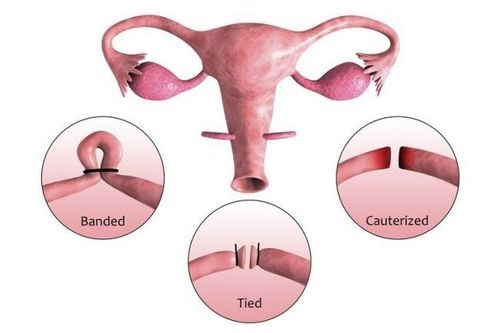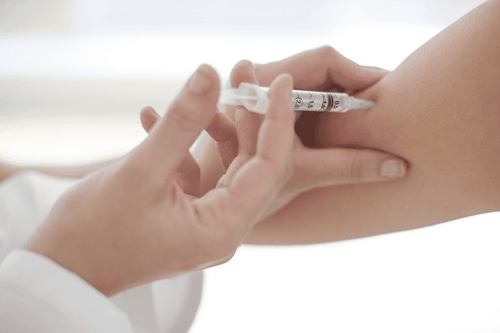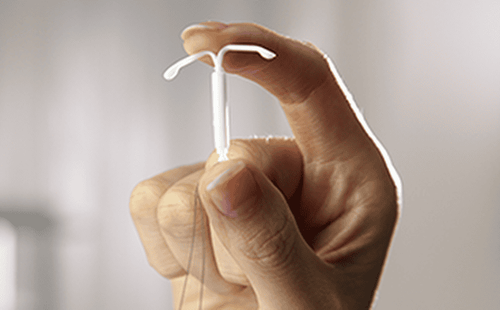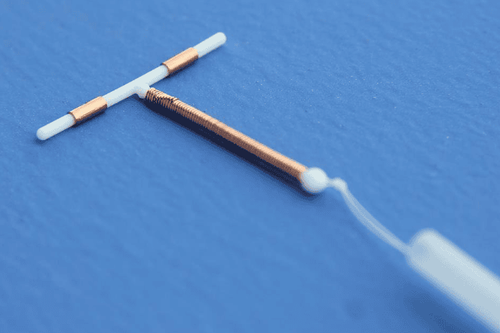This is an automatically translated article.
The World Health Organization has recommended that women after giving birth should delay at least 2 years before becoming pregnant again to ensure the health of both mother and baby. Therefore, in the postpartum period, it is very important to choose a suitable method of contraception that is both safe for the mother and safe for the baby.
1. Consequences of unwanted pregnancy:
Unintended pregnancy shortens the interval between births, bringing disadvantages to the mother and baby or bringing economic burden. This is also one of the causes of abortion, so it is very important to take appropriate contraceptive measures. In the postpartum period, breastfeeding also has a contraceptive effect, but the effectiveness is only guaranteed when the following factors are present:
No more than 6 months after birth The child is exclusively breastfed The mother does not have a period If the answer is: If the above conditions are met, the pregnancy-free rate can be as high as 98%, but otherwise, there is still a possibility of pregnancy and the application of a safe method of contraception to prevent pregnancy while breastfeeding is necessary. set

Phụ nữ sau sinh nên trì hoãn ít nhất 2 năm trước khi mang thai trở lại
2. When to use birth control methods after giving birth
The use of birth control methods after giving birth also depends on how the woman is raising the baby. If you don't breastfeed after giving birth but use formula or a combination of the two, your period should return in about 6 weeks to 3 months. Therefore, if you have sex after giving birth, you can get pregnant for 2 weeks before your period returns. Therefore, to prevent unwanted pregnancy, you should use postpartum contraception from 3-4 weeks after the baby is born.
If a woman is only breastfeeding and has not started eating solids or drinking formula, the chances of pregnancy are quite low. The reason is because the more the baby suckles, the more hormones stimulate milk production, thereby blocking the action of hormones that cause ovulation. However, if you reduce the frequency or stop breastfeeding completely, your period will return and the probability of pregnancy is very high.
3. Postpartum contraceptive measures
The most important postpartum contraception is how it is both effective for the mother and safe for the baby and does not affect the quality of breast milk. At this stage, the mother can choose non-hormonal methods of contraception or hormonal methods of contraception or 72-hour emergency contraceptive pills containing only levonorgestrel, specifically as follows:
Condoms : is The method can be used very soon after giving birth, at the first time having sex again and completely without affecting breast milk. This is also the only method of birth control that helps prevent sexually transmitted diseases, if used correctly, it can prevent pregnancy up to 98%.

Bao cao su có thể mang lại hiệu quả ngừa thai lên tới 98%
IUD: is a method that, if used correctly, can achieve an almost absolute rate of preventing pregnancy and does not affect breast milk. The ring is effective for 5-10 years with 1 application. However, before placing the IUD, women need to wait about 4-6 weeks for the uterus to recover after giving birth. If you have a cesarean section, the IUD should only be inserted when other methods of contraception are not available and need to wait more than 12 weeks postpartum and after the first menstrual period. Contraceptive injection: for injectable contraceptive DMPA with high effectiveness in preventing pregnancy and affecting breast milk, but it is necessary to wait at least 6 weeks postpartum and repeat injection every 3 months. However, oral contraceptives have an effect on bone density if used for a long time, especially in young people. On the other hand, because it is a long-lasting contraceptive, it is necessary to wait an average of 10 months when stopping the pill for the ovaries to recover and be ready to become pregnant again. Contraceptives: women should choose oral contraceptives progestin because it does not affect lactation and can be started at any time after birth. The pill must be taken at a fixed time, must not be forgotten more than 3 hours after giving birth, and the effectiveness of contraception is only 92%. Contraceptive implant: is implanted under the skin on the inside of the arm that works to prevent pregnancy for 3 years, does not affect breast milk as well as the breastfeeding process. However, the contraceptive implant also has many side effects such as heavy menstrual bleeding in the first few months or headaches, dizziness 72-hour emergency contraceptive pill containing levonorgestrel: can be used by women who are breast-feeding as a method of contraception. Safe and effective emergency contraception.
Please dial HOTLINE for more information or register for an appointment HERE. Download MyVinmec app to make appointments faster and to manage your bookings easily.













